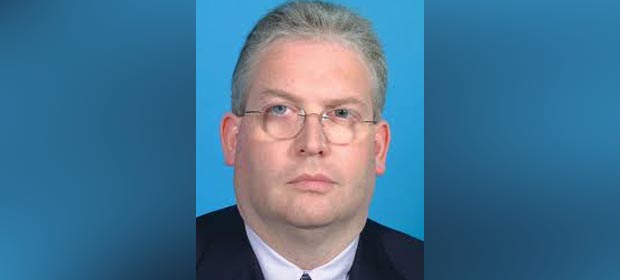One of the greatest challenges facing the Irish health services was to ensure that diminishing resources were absolutely focused on the core business of the health service, Mr. Tony O’Brien, Director Designate HSE told The 9th National Health Summit. Maureen Browne reports.
One of the greatest challenges facing the Irish health services was to ensure that diminishing resources were absolutely focused on the core business of the health service, Mr. Tony O’Brien, Director Designate HSE told the Conference.

He said that if the services were to lose another 5,000 or 6,000 people in the year ahead, it would be necessary to see what should and should not be provided with core health service personnel.
“There are things which the health service needs but are they things that we need to provide ourselves? These are discussions which we must have in the context of the Croke Park Agreement.”
He said that there had been a total reduction in the HSE budget of €3.3 billion since 2008. This year’s budget had been reduced by €721 million. The hospitals had an incoming deficit of €271 million which was sufficiently large to destabilise all our health services and last August had forced the HSE to take decisions such as reducing home helps etc., which were not in the best interests of people.
Primary care schemes had a cost reduction challenge of €383 million this year and in part this would be met by Government decisions in areas such as trebling prescription changes.
“Workforce modernisation in line with Croke Park is clearly going to be part of how we navigate continued diminution of resources.
“This year, we need to see a gross reduction of 4,000 WTEs under a voluntary exit scheme. Staff levels have already been reduced by over 22,000 or a little over ten per cent of our workforce since September 2007.
“Under this exit package, there will be the ability to refuse to sanction applications to leave but the challenge will be great.
“We have the dual challenge of reducing costs while at the same time improving patient outcomes. Patient safety is paramount. We will continue to introduce models of care across all services and care groups and we will continue with workforce modernisation in the context of the PSA. Patients are being treated faster and far more are spending less time on trolleys, partly due to the Clinical Care Programmes which are improving quality of care, changing models of care and reducing the time patients spend in hospital.
“Workforce modernisation in line with Croke Park is clearly going to be part of how we navigate continued diminution of resources. More and more is being asked of our staff at a time when they can legitimately claim they have given considerable amounts. Without them, the service would not be performing as it is at present and I have no doubt our services are more efficient than before and there is far more activity per euro being spent.”
“First we will have hospital groupings, and then we need to do the same in primary care and other services.
Mr. O’Brien said that we were heading in the direction of money following the patient and we had to confront the reality that over a successive number of years the common orthodoxy had been to cut and cut at hospital budgets without regard to where they had started or if the hospitals could deliver, even in the face of international evidence that hospitals could never deliver a 7 – 11 per cent reduction in a single year.
He said that this year the HSE had shifted a considerable resources from other sectors to the hospitals and distributed them not evenly but to avoid recurrence of last year’s deficit by ensuring that all service managers had a realistic gap to bridge between last year’s outcome and this year’s activity. Cuts ranged from 2 -1 3.9 per cent.
“The bottom line is that when a hospital inherits a budget which was never based on anything in particular and which guarantees a deficit which could destabilise all our health services, there is no option but to redistribute. Hospitals cannot plan for deficits and there are no circumstances where I want myself next August having to contemplate cuts in home help or similar areas.”
Mr. O’Brien said that the evolution of hospital groups, similar to what had happened in Galway and the Mid-West were very important in transforming the way our hospital services were managed. “I have long argued that in its infancy, the HSE was driven towards a degree of centralisation which was not conducive to maximising freedom of action close to where decision making should take place.
“First we will have hospital groupings, and then we need to do the same in primary care and other services.”
He said that our rate of generic prescribing was very low and as a result we were spending far more money on medicines than we needed to do and there would be a focus on this.

